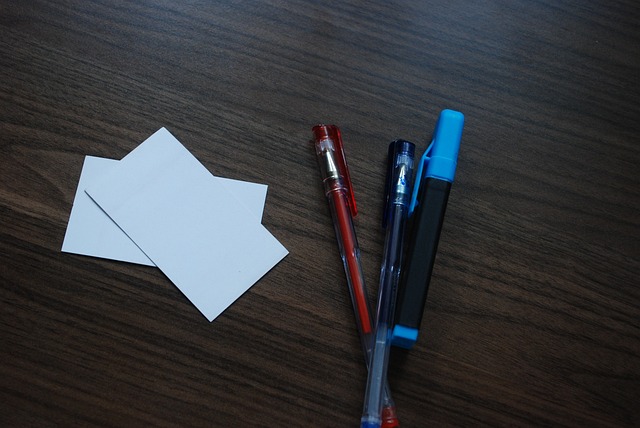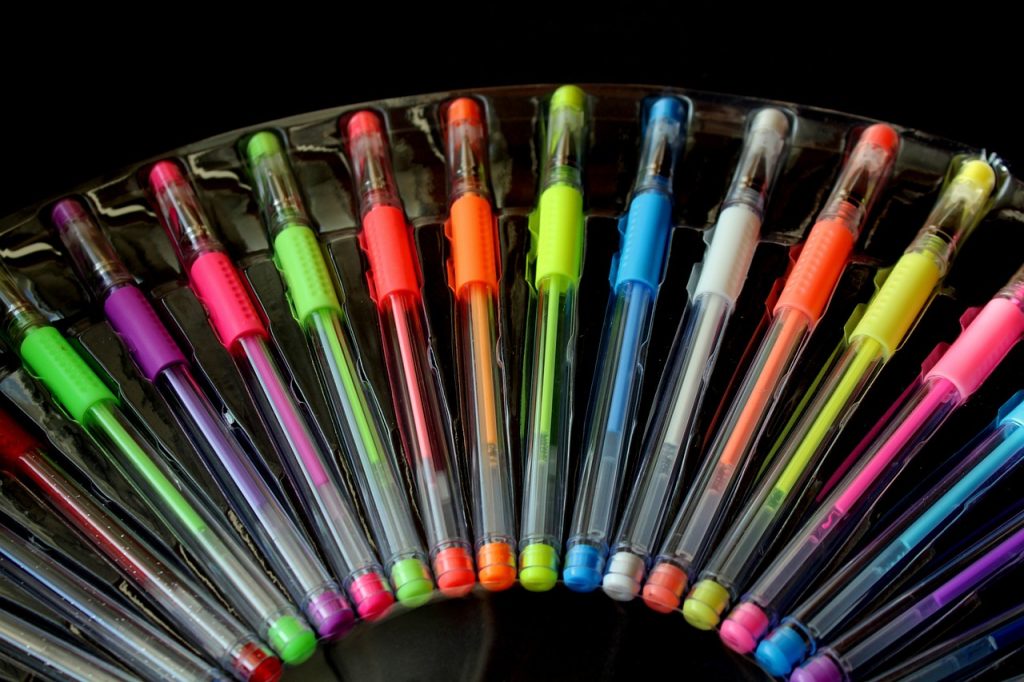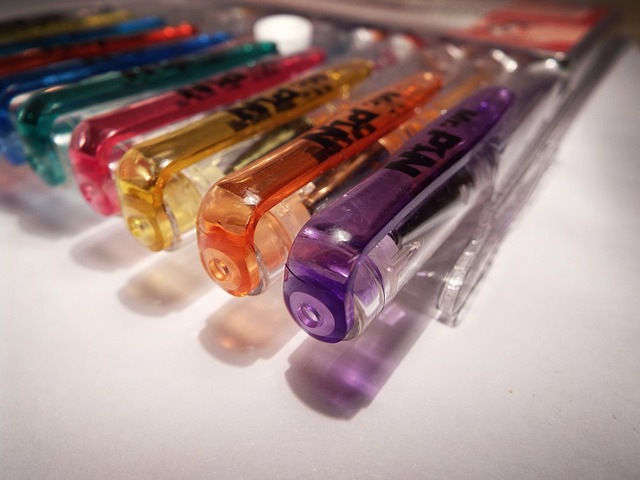Gel pens are often not allowed in exams due to their potential to smudge, making answers illegible and facilitating cheating.
Gel pens have gained popularity for their smooth writing and vibrant colors, making them a favorite among students and professionals alike.
However, when it comes to exams, most educational institutions strictly forbid the use of gel pens.
The reasons for this restriction revolve around preventing cheating and maintaining the integrity of the examination process.
Gel pens often have a quick-drying ink formula that is prone to smudging and bleeding through the paper, making it difficult for examiners to evaluate the answers accurately.
The gel ink may be more easily tampered with or erased, enabling students to alter their responses or engage in unauthorized activities. Consequently, traditional ballpoint pens are typically mandated for examinations.
Why Are Gel Pens Not Allowed in Exams?

While gel pens offer a smooth and vibrant writing experience, their use is often restricted in exams due to potential drawbacks.
Why are gel pens not allowed in exams when it makes writing so easy? Here’s why you can’t use gel pens in exams, although they writes so smoothly.
Smudging Concerns
Gel pens contain ink that takes longer to dry compared to other pen types, increasing the likelihood of smudging. This can render answers unreadable and create challenges during the assessment process.
Cheating Prevention
Gel pens tend to smudge, potentially making answers unreadable and facilitating cheating.
The ink’s slower drying time can enable students to tamper with their answers even after completing the exam. This potential for manipulation raises concerns about academic integrity and fairness.
Uniformity and Readability
Ballpoint or rollerball pens are preferred in exams because their quick-drying ink minimizes smudging, ensuring a uniform and legible presentation of answers.
Examiners can quickly review and grade responses without undue hindrance.
Accurate Assessment
Gel pen smudges may obscure vital details or cause unintended marks, leading to misinterpretation by examiners. Non-smudged answers allow for a more accurate evaluation of a student’s knowledge and understanding.
Here’s why, the accurate assessment makes the Gellpen not allowed into the examination.
- Preventing Cheating: Gel pens are prohibited in examination halls due to their potential to aid in cheating. Their smooth ink flow and fine tips can facilitate covert writing of answers on palms or small paper pieces, enabling students to cheat discreetly during exams.
- Ensuring Uniformity: Many examination bodies mandate the use of standard ballpoint pens with uniform ink density.
Gel pens, which may have varying ink densities, can result in inconsistencies in document scanning and photocopying, affecting the legibility of the answers during the evaluation process.
To maintain fairness and standardization, gel pens are often not allowed.
Mitigating Distractions
During the exam, students might inadvertently touch the freshly written content, causing smudging and diverting their focus from the task at hand. Non-gel pens help minimize such distractions.
Preventing Delays:
Gel pens, while known for their smoothness, can cause disruptions due to slower drying times, potentially leading to smudged ink.
In contrast, using ballpoint pens or quick-drying rollerball pens ensures that writing remains crisp and dries rapidly, allowing students to turn over their answer sheets without the worry of smearing.
This efficient drying property of alternatives reduces the time needed for students to handle their papers cautiously, preventing inadvertent smudging and the subsequent need for rewriting.
By embracing these alternatives, examination processes can maintain a steady pace, minimizing delays, and ensuring that students can focus solely on articulating their knowledge rather than dealing with ink-related setbacks.
Maintaining Order
The consistent use of non-gel pens helps establish a standardized approach to writing within exams, reducing the chances of confusion or disagreements regarding acceptable writing instruments.
Adherence to Regulations
Many educational institutions have specific guidelines for exam conditions, often including directives about the types of pens allowed.
Using non-gel pens ensures compliance with these regulations and promotes a level playing field for all students.
What Are the Alternative Writing Instruments of Gel Pens in Exam?

Hopefully, you know why You have to look for alternative writing instruments for Gel pens. It’s because of the smudging, cheating, and fairness issues with the gel pen.
Now, what are the alternative writing instruments of Gel pens? Let’s disclose.
Ballpoint Pens: Widely used and reliable, ballpoint pens offer quick-drying ink and minimal smudging, making them a standard choice for exam environments.
Rollerball Pens: Similar to gel pens but with water-based ink, rollerball pens provide smooth writing and quick drying, reducing the risk of smudging.
Fountain Pens: While less common in exams, fountain pens offer controlled ink flow and a traditional writing experience, with many models designed to minimize smudging.
No. 2 Pencils: Often used for scantron-type exams, pencils are erasable and less prone to smudging, providing a convenient alternative.
Felt-Tip Pens: These pens, also known as marker pens, have a consistent ink flow and are available in various colors. They typically dry quickly and are less prone to smudging.
Mechanical Pencils: A precise option for exams, mechanical pencils provide fine lines and can be easily erased if needed.
Gel Pens with Quick-Drying Ink: In cases where gel pens are allowed but smudging is a concern, some gel pens come with specially formulated quick-drying ink to minimize the risk.
Disposable Pens with Fast-Drying Ink: Some disposable pens are designed with fast-drying ink, providing an alternative for students who prefer a pen but need quick-drying characteristics.
Remember to check the specific exam regulations to ensure that the chosen alternative is permitted.
FAQs
How to Prepare Effectively for Exams Using Non-Gel Pens?
Practice writing with a ballpoint or rollerball pen beforehand to ensure neatness and familiarity with the writing tool.
What is the issue with smudging in exams?
Smudging can make it difficult for examiners to assess your answers accurately, and it might lead to misinterpretation or loss of marks.
Do gel pens smudge more than other types of pens?
Yes, gel pens are prone to smudging more than ballpoint or rollerball pens due to their ink composition.
Are there specific gel pens that don’t smudge?
Yes, certain gel pens labeled as “quick-drying” or “smudge-proof” are designed to minimize or eliminate smudging.
Are students allowed to use any type of pen in exams?
No, students are typically required to use pens that adhere to specific guidelines set by the examination authorities.
Can gel pens be used in situations other than exams?
Yes, gel pens can be used in various non-exam situations such as writing, drawing, note-taking, and general day-to-day writing tasks.
What happens if I accidentally use a gel pen in an exam?
Your answers might smudge, impacting readability. It’s advisable to follow exam guidelines and use permitted pens.
Why not use pencils instead of gel pens?
Pencils can be erased and modified easily, potentially leading to cheating or unfair advantages.
Are there instances where gel pens are allowed in exams?
Yes, in some cases, gel pens might be allowed in exams if they meet the specific pen guidelines and regulations set by the examination authorities.
Conclusion
Gel pens are not allowed in exams due to their potential for smudging and the difficulty in erasing errors. While gel pens offer a smooth writing experience and vibrant colors, their ink takes longer to dry, making it prone to smearing and causing potential readability issues.
So, it’s now clear why gel pens are not allowed in exams, right?
To prepare effectively for exams, students can rely on non-gel pens such as ballpoint or rollerball pens that provide a consistent flow, quick drying time, and easy erasability.
It is important to select reliable and comfortable pens to write with to enhance focus and overall exam performance.











